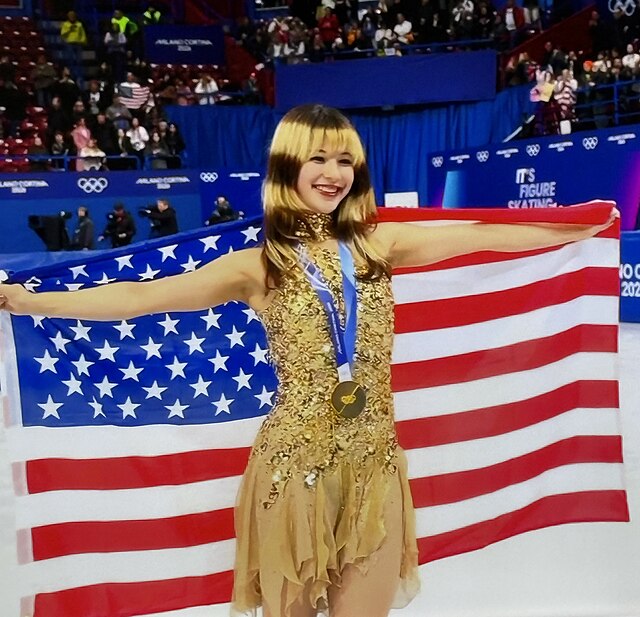The movie opens with Helen Mirren’s magisterial voice narrating the world we are about to witness, its opening scene immediately declaring for a cause: “SMASH THE PATRIARCHY!”
Immediately, the sceptical viewer is disarmed by the visual metaphor; delivered as it is – with an unapologetic panache. ‘Barbieworld’ is a particular version of a feminist utopia where incredibly smooth skinned, hairless himbos, clad in eye popping pastel shades that might spontaneously cure monochromatism, ornament the lives of the ceiling smashing Barbies that dominate society. Theirs is a benevolent dictatorship, where men are disenfranchised but treated exceptionally better than the real world dominated by the patriarchy.
Ryan Gosling plays one of the many Kens in this film as the himbo primus inter pares while Simu Liu portrays his rival and homoerotic object of desire. As they both vie for Robbie’s attention, they butt heads aggressively – un-aggressively. While taking turns threatening to beach the other off — instantly coining a double entendre that might just take off. Despite the terrific concentration of abs and male chest cleavage (notably absent for the women throughout the film) on display, men have been tamed of their aggression. You can tell this won’t last. A two hour advertisement cannot sustain itself on pure feel good wish casting alone.
Barbie exhibits an admirable ideological dexterity. It self-consciously makes an effort to superficially validate the angst brewing in the contemporary generation just coming of age. The conduit of these concerns is portrayed by a moody teenage girl who just needs to grow out of it. It is an inherently conservative critique that mirrors the logic of conservative reactionaries the film seeks to rebut.
Mattel is run solely by men, a fact explicitly and self-evidently acknowledged as hypocritical. It is in the boardroom that structural inequality gets a brief moment of acknowledgement through the best line in the movie when Connor Swindell (Sex Education’s Adam Groff) says:
“I’m a man with no power. Am I a woman?”
This is the closest the movie comes to a materially grounded understanding of patriarchy.
Obedience to the profit motive is demonstrated by the chicanery of executives trying to put women back in their box, alongside their tedious declarations of alliance to women through umbilical connections. Mattel is being satirised in its own advertisement for its own benefit. Rooseveltian notions of saving capitalism from itself come to mind in the exotic display of self-criticism Will Ferrell’s character embodies.
For Gerwig, patriarchy is best theorised as a virus that can infect an unsullied society like Barbieworld. just as small pox infected the indigenous people’s of North America and wrought their destruction; a reference explicitly made in the film and a contender for the most unintelligent and distasteful line in the whole film. Yet it is also one of its most revealing.
The patriarchy is a set of bad ideas that infect the body politic and, with enough preaching, it can be reversed. It is maintained and reproduced solely by conviction. Violence never factors into it and how could it? That would upend the tension the film expertly maintains. The very concept of structural discrimination, so commonly discussed in North American political discourse, is thus negated at a stroke. The musical sequences, sudden interjections of Mattel advertising, moments of vulnerable candour, uproarious moments of humour — all work in synergy to soften the senses in preparation for ingesting this message. And they work with a beautiful synchrony.
Gerwig and co-writer/husband Noah Baumbach have anticipated every ideological punch and presented the most coherent vision of liberal feminism through the medium of kitsch. For their exceptional craft, they deserve credit and even admiration. Radical feminism does not have the budget or the rights to intellectual property for rebutting the politics of Barbie through its own framework but if it did, it can learn a lot from their craftsmanship.
Barbie is a challenging film, that requires serious engagement, armoured with a disarming coat of magenta coloured ideological cotton candy. Like Gosling’s dreamy eyes and knee-wobbling smile, it asks you to put the encroaching flames on the horizon out of sight and join in a dance with the Kens and the Barbies. To imagine a world where we are Kenough. To manifest feminist utopia with good intentions and sheer will. Even the moody teenager cheers up, grows close to her mom, works within established institutions to redress the patriarchy. So why can’t you? In essence, serious grown ups try to establish an all female Supreme Court rather than fruitlessly endeavour to strip it of its power.
This film works diligently to expose truths about the real world within an unreal one. Yet it is peculiar how successfully it bounds our imagination within the limited ideological confines of its stupidly wealthy architects. But we need only to follow through on its central metaphor by placing ourselves in Barbieworld and crossing over to the messier domain of the real world. Except that – Barbieworld was conceived and constructed in the very world we occupy. We are all, more than we realise, Barbie.




